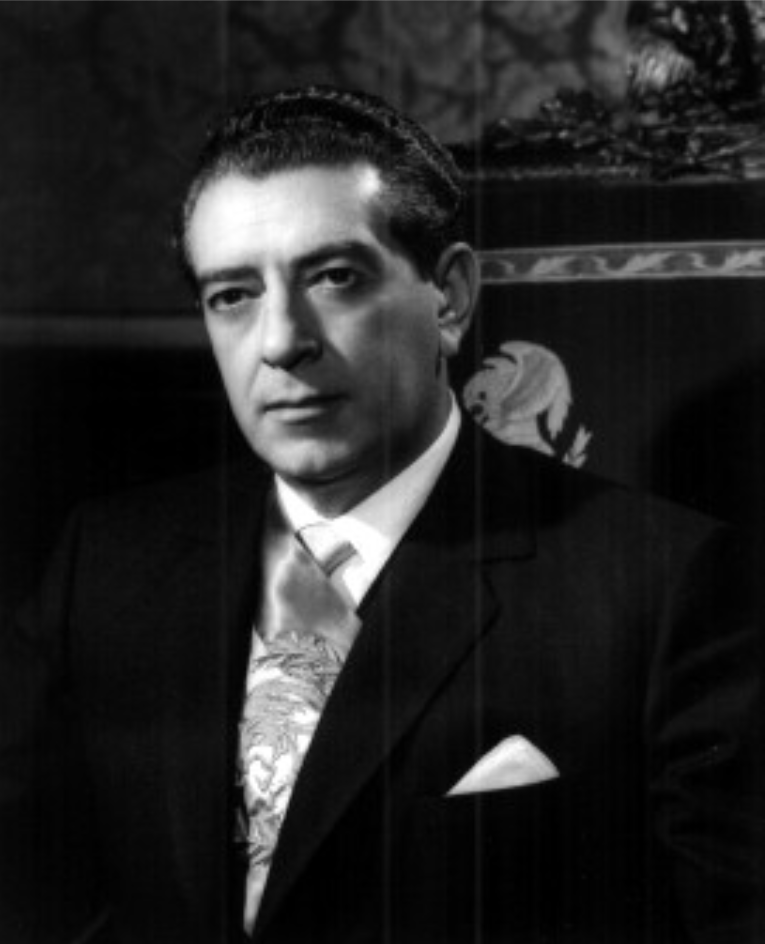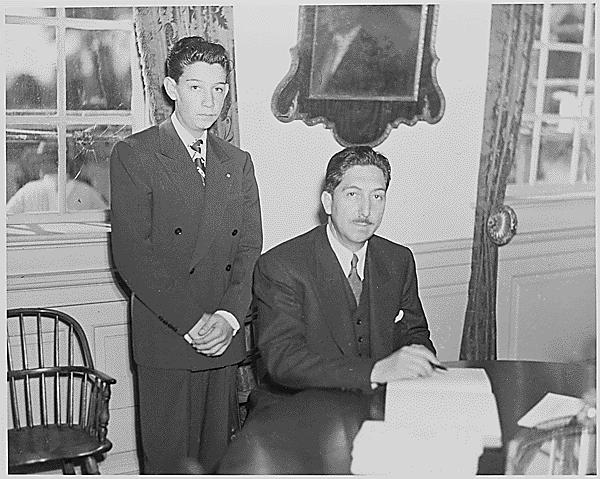|
Sagarpa
The Secretariat of Agriculture and Rural Development ( es , Secretaría de Agricultura y Desarrollo Rural; SADER) is Mexico's agriculture ministry. The current secretary under President Andrés Manuel López Obrador (AMLO), starting December 1, 2018, is Víctor Villalobos. History The secretariat traces its roots to 1917, when it was established as the ''Secretaría de Agricultura y Fomento'' (Secretariat of Agriculture and Development). The name changed in 1946 to ''Secretaría de Agricultura y Ganadería'' (Secretariat of Agriculture and Ranching), in 1976 to ''Secretaría de Agricultura y Recursos Hidráulicos'' (Secretariat of Agriculture and Hydraulic Resources), and again in 1994 to ''Secretaría de Agricultura, Ganadería y Desarrollo Rural'' (Secretariat of Agriculture, Ranching and Rural Development). In 2000, the name changed to the Secretariat of Agriculture, Livestock, Rural Development, Fisheries and Food ( es , Secretaría de Agricultura, Ganadería, Desarrollo ... [...More Info...] [...Related Items...] OR: [Wikipedia] [Google] [Baidu] |
Víctor Villalobos
Víctor Manuel Villalobos Arámbula is an agricultural engineer with a specialty in agronomy who serves as the Secretary of Agriculture and Rural Development (SADER) in the administration of Mexican President Andrés Manuel López Obrador (AMLO). Dr. Villalobos is an expert in agriculture and natural and genetic resources. He has been a professor, researcher, research director, international official, government official, administrator, and leader of multidisciplinary analysis and decision groups. Education Víctor Villalobos earned his bachelor's degree in agricultural engineering and his master's degree in plant genetics from the Chapingo Autonomous University (UACH) in Texcoco, State of Mexico. His doctorate from the University of Calgary, Canada, is in plant morphology. He has worked as a professor at the Chapingo Autonomous University, the College of Postgraduates (COLPOS), and the Center for Research and Advanced Studies of the National Polytechnic Institute of Mexico ( ... [...More Info...] [...Related Items...] OR: [Wikipedia] [Google] [Baidu] |
Baltazar Hinojosa Ochoa
Baltazar Manuel Hinojosa Ochoa (born September 13, 1963) is a Mexican-American politician from the Institutional Revolutionary Party (PRI) and former Secretary of Agriculture, Livestock, Rural Development, Fisheries and Food. He holds a bachelor's degree in economics from the Universidad de Monterrey. Political career Hinojosa joined the PRI in 1981 and was a member of its National Political Council and the Standing Political Commission. He also was a member of the PRI's Political State Council in Tamaulipas and Municipal Political Advisor in Matamoros. He was also the General Director of the League of Revolutionary Economists Trust of the Mexican Republic (LER, by its Spanish acronym), as well as its finance secretary and regional coordination deputy secretary for Northern Mexico. After receiving his degree, in his first public position, he was advisor at the General Office of Documentation, Analysis, and Evaluation of the . There, he served as advisor and spokesman for the Und ... [...More Info...] [...Related Items...] OR: [Wikipedia] [Google] [Baidu] |
Federal Government Of Mexico
The Federal government of Mexico (alternately known as the Government of the Republic or ' or ') is the national government of the Mexico, United Mexican States, the central government established by its constitution to share sovereignty over the republic with the governments of the 31 individual Mexican states, and to represent such governments before international bodies such as the United Nations. The Mexican federal government has three branches: executive, legislative, and judicial and functions per the Constitution of Mexico, Constitution of the United Mexican States, as enacted in 1917, and as amended. The executive power is exercised by the executive branch, which is headed by the president and his Cabinet of Mexico, Cabinet, which, together, are independent of the legislature. Legislative power is vested upon the Congress of Mexico, Congress of the Union, a bicameral legislature comprising the Senate of Mexico, Senate and the Chamber of Deputies of Mexico, Chamber of Deput ... [...More Info...] [...Related Items...] OR: [Wikipedia] [Google] [Baidu] |
Pascual Ortiz Rubio
Pascual Ortiz Rubio (; 10 March 1877 – 4 November 1963) was a first Mexican President of Mexico from 1930 to 1932. He was one of three Mexican presidents to serve out the six-year term (1928–1934) of assassinated president-elect Álvaro Obregón, while former president Plutarco Elías Calles retained power in a period known as the Maximato. Calles was so blatantly in control of the government that Ortiz Rubio resigned the presidency in protest in September 1932. Early life and education He was born in Morelia, Michoacán, the son of a lawyer and landowner, Pascual Ortiz de Ayala y Huerta, and Leonor Rubio Cornejo. He attended the Colegio de San Nicolás, in Michoacan's capital of Morelia, training as an engineer. He became politically active as a student and was opposed to the re-election of Porfirio Díaz in 1896. With the outbreak of the Mexican Revolution in 1910 and the election of Francisco I. Madero in 1911, Ortiz Rubio was elected to the federal legislature as a ... [...More Info...] [...Related Items...] OR: [Wikipedia] [Google] [Baidu] |
Luis Echeverría
Luis Echeverría Álvarez (; 17 January 1922 – 8 July 2022) was a Mexican lawyer, academic, and politician affiliated with the Institutional Revolutionary Party (PRI), who served as the 57th president of Mexico from 1970 to 1976. Previously, he was Secretariat of the Interior (Mexico), Secretary of the Interior from 1963 to 1969. At the time of his death in 2022, he was his country's oldest living former head of state. His tenure as Secretary of the Interior during the Gustavo Díaz Ordaz, Díaz Ordaz administration was marked by an increase in political repression. Dissident journalists, politicians, and activists were subjected to censorship, arbitrary arrests, torture, and extrajudicial killings. This culminated with the Tlatelolco massacre of 2 October 1968, which ruptured the Mexican Movement of 1968, Mexican student movement; Díaz Ordaz, Echeverría, and Secretary of Defense Marcelino Garcia Barragán have been considered as the intellectual authors of the massacre, in ... [...More Info...] [...Related Items...] OR: [Wikipedia] [Google] [Baidu] |
Manuel Bernardo Aguirre
Manuel Bernardo Aguirre Samaniego (20 August 1908 – 4 April 1999) was a Mexican politician. He was secretary of agriculture (1970–1974) and governor of Chihuahua (state) (1974–1980). He was a member of the Institutional Revolutionary Party The Institutional Revolutionary Party ( es, Partido Revolucionario Institucional, ; abbr. PRI) is a political party in Mexico that was founded in 1929 and held uninterrupted power in the country for 71 years, from 1929 to 2000, first as the Nati .... 1908 births 1999 deaths Governors of Chihuahua (state) Presidents of the Chamber of Deputies (Mexico) Mexican Secretaries of Agriculture Members of the Senate of the Republic (Mexico) Institutional Revolutionary Party politicians Politicians from Chihuahua (state) 20th-century Mexican politicians {{Mexico-politician-stub ... [...More Info...] [...Related Items...] OR: [Wikipedia] [Google] [Baidu] |
Gustavo Díaz Ordaz
Gustavo Díaz Ordaz Bolaños (; 12 March 1911 – 15 July 1979) was a Mexican politician and member of the Institutional Revolutionary Party (PRI). He served as the President of Mexico from 1964 to 1970. Díaz Ordaz was born in San Andrés Chalchicomula, and obtained a law degree from the University of Puebla in 1937 where he later became its vice-rector. He represented Puebla's 1st district in the Chamber of Deputies from 1943 to 1946. Subsequently he represented the same state in the Chamber of Senators from 1946 to 1952 becoming closely acquainted with then-senator Adolfo López Mateos. Díaz Ordaz joined the campaign of Adolfo Ruiz Cortines for the 1952 election and subsequently worked for the Secretariat of the Interior under Ángel Carvajal Bernal. He became the secretary following López Mateos' victory in the 1958 election, and exercised ''de facto'' executive power during the absences of the president, particularly during the Cuban Missile Crisis. In 1963, the ... [...More Info...] [...Related Items...] OR: [Wikipedia] [Google] [Baidu] |
Adolfo López Mateos
Adolfo López Mateos (; 26 May 1909 – 22 September 1969) was a Mexican politician who served as President of Mexico from 1958 to 1964. Beginning his political career as a campaign aide of José Vasconcelos during his run for president, López Mateos encountered repression from Plutarco Elías Calles, who attempted to maintain hegemony within the National Revolutionary Party (PNR). He briefly abandoned politics and worked as a professor at the Autonomous University of Mexico State, becoming a member of the PNR (renamed Party of the Mexican Revolution) in 1941. López Mateos served as senator for the State of Mexico from 1946 to 1952 and Secretary of Labor during the administration of Adolfo Ruiz Cortines from 1952 to 1957. He secured the party's presidential nomination and won in the 1958 general election. Declaring his political philosophy to be "left within the Constitution", López Mateos was the first self-declared left-wing politician to hold the presidency since Láza ... [...More Info...] [...Related Items...] OR: [Wikipedia] [Google] [Baidu] |
Adolfo Ruiz Cortines
Adolfo Tomás Ruiz Cortines (; 30 December 1889 – 3 December 1973) was a Mexican politician who served as President of Mexico from 1952 to 1958, after winning the disputed 1952 elections as the candidate of the ruling Institutional Revolutionary Party (PRI). A member of the Constitutionalist Army, Ruiz Cortines was the last Mexican president to have fought in the Mexican Revolution. He worked at the Ministry of Industry and Commerce during the administration of Adolfo de la Huerta and served as an official in the Department of Statistics from 1921 to 1935. Ruiz Cortines joined the Institutional Revolutionary Party and became Senior Official of the Government of the Federal District in 1935 and member of the Chamber of Deputies for Veracruz in 1937. In 1939 he was appointed treasurer of the presidential campaign of Manuel Ávila Camacho and worked as Governor of Veracruz from 1944 to 1948, a position he left to become Secretariat of the Interior during the administration o ... [...More Info...] [...Related Items...] OR: [Wikipedia] [Google] [Baidu] |
Miguel Alemán Valdés
Miguel Alemán Valdés (; 29 September 1900 – 14 May 1983) was a Mexican politician who served a full term as the President of Mexico from 1946 to 1952, the first civilian president after a string of revolutionary generals. His administration was characterized by Mexico's rapid industrialization, often called the Mexican Miracle, but also for a high level of personal enrichment for himself and his associates. His presidency was the first of a new generation of Mexican leaders, who had not directly participated in the Mexican Revolution, and many in his cabinet were also young, university-educated civilians, close friends from his days at university. Early life and career Alemán was born in Sayula in the state of Veracruz,''Current Biography 1946 Yearbook'', p. 9. the son of revolutionary Gen. Miguel Alemán González and Tomasa Valdés Ledezma. Both had been married before, with Alemán González having a son by his first wife. They had two sons together, Carlos a ... [...More Info...] [...Related Items...] OR: [Wikipedia] [Google] [Baidu] |
Manuel Ávila Camacho
Manuel Ávila Camacho (; 24 April 1897 – 13 October 1955) was a Mexican politician and military leader who served as the President of Mexico from 1940 to 1946. Despite participating in the Mexican Revolution and achieving a high rank, he came to the presidency of Mexico because of his direct connection to General Lázaro Cárdenas and served him as a right-hand man as his Chief of his General Staff during the Mexican Revolution and afterwards. He was called affectionately by Mexicans "The Gentleman President" ("El Presidente Caballero"). As president, he pursued "national policies of unity, adjustment, and moderation." His administration completed the transition from military to civilian leadership, ended confrontational anticlericalism, reversed the push for socialist education, and restored a working relationship with the US during World War II. Early life Manuel Ávila was born in Teziutlán, a small but economically important town in Puebla, to middle-class parents, Manue ... [...More Info...] [...Related Items...] OR: [Wikipedia] [Google] [Baidu] |
Tomás Garrido Canabal
Tomás Garrido Canabal (September 20, 1891 – April 8, 1943) was a Mexican politician, revolutionary and atheist activist. Garrido Canabal served governor of the state of Tabasco from 1920 to 1924 and from 1931 to 1934. He was noted for his anti-Catholicism, during his term he led persecutions against the Church in his state, killing many priests and laymen and driving the remainder underground. Biography Tomás Garrido Canabal was born in the hacienda of Playas de Catazajá, in the northernmost part of the Mexican state of Chiapas. During the Mexican Revolution, he was drawn into politics. He was named interim governor of Tabasco for a brief spell in 1919 (and then of the Yucatán in May and June 1920) until in December 1920 "Garrido again became provisional governor of Tabasco. From this point until August 1935 (except for a brief hiatus during the de la Huerta rebellion) he controlled the state." Garrido's rule, which marked the apogee of Mexican anti-clericalism, was sup ... [...More Info...] [...Related Items...] OR: [Wikipedia] [Google] [Baidu] |
.jpg)





